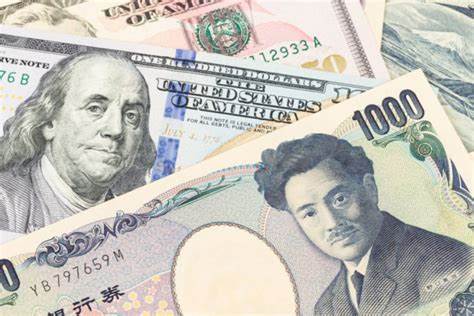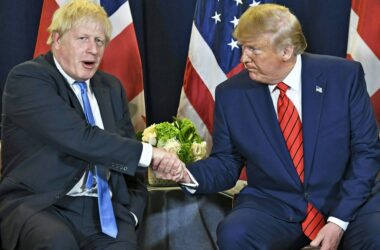In a move reflecting the escalating political heat driven by inflation exacerbated by weak exchange rates, Japan and South Korea have teamed up to voice their currency concerns in a joint statement with the United States this week.
The success of this collaboration underscores the urgency faced by both countries, particularly amidst rising tensions in the Middle East that threaten to further elevate oil prices, adding to existing cost pressures that have already taken a toll on domestic politics in Japan and South Korea.
The joint statement, issued during the first trilateral finance dialogue since last year’s historic leaders’ summit at Camp David, emphasizes the need for close consultation on currency markets and acknowledges the serious concerns expressed by Tokyo and Seoul regarding the depreciating Japanese yen and South Korean won.
While the U.S. dollar has witnessed a broad appreciation this year due to expectations of a delay in the Federal Reserve’s interest rate cuts, the yen and won have experienced more significant weakening against the greenback compared to most other currencies. Following the issuance of the statement, the yen rebounded as markets anticipated potential intervention, with the possibility of coordinated action reminiscent of the 1985 “Plaza Accord” being flagged by some traders.
The inclusion of robust language in the statement regarding currency concerns is seen as a significant achievement for Japan and South Korea, reflecting the deep ties among the three countries. This recognition by Washington is expected to facilitate potential interventions in the currency market by Tokyo or Seoul if deemed necessary.
However, while exchange rates were a focal point of discussion during the finance dialogue, they were just one among many topics covered. The dialogue, established under an agreement reached at the trilateral summit outside of Washington last August, also addressed issues such as countering China’s growing presence in the Asia-Pacific region.
The attention garnered by the currency language in the statement represents a political victory for Japan, particularly amidst Prime Minister Fumio Kishida’s declining approval ratings as rising living costs impact households. Similarly, South Korea has been grappling with cost-push inflation, with President Yoon Suk Yeol’s party suffering a significant defeat in legislative elections amid accusations of failure to curb inflation.
Both Japan and South Korea remain sensitive to exchange-rate movements, given their heavy reliance on imports of fuel and food. Japanese officials, in particular, have been actively advocating for intervention in the currency market to address the yen’s decline, with Finance Minister Shunichi Suzuki highlighting Tokyo’s readiness to take appropriate action during bilateral discussions with U.S. Treasury Secretary Janet Yellen.
As inflation continues to pose challenges for both countries, policymakers are navigating the complexities of monetary policy decisions amidst exchange-rate volatility. BOJ Governor Kazuo Ueda has signaled the central bank’s willingness to raise interest rates if the impact of the weak yen on inflation becomes significant.
Overall, the collaboration between Japan and South Korea on currency concerns reflects their shared commitment to addressing economic challenges amid evolving geopolitical dynamics in the region.








